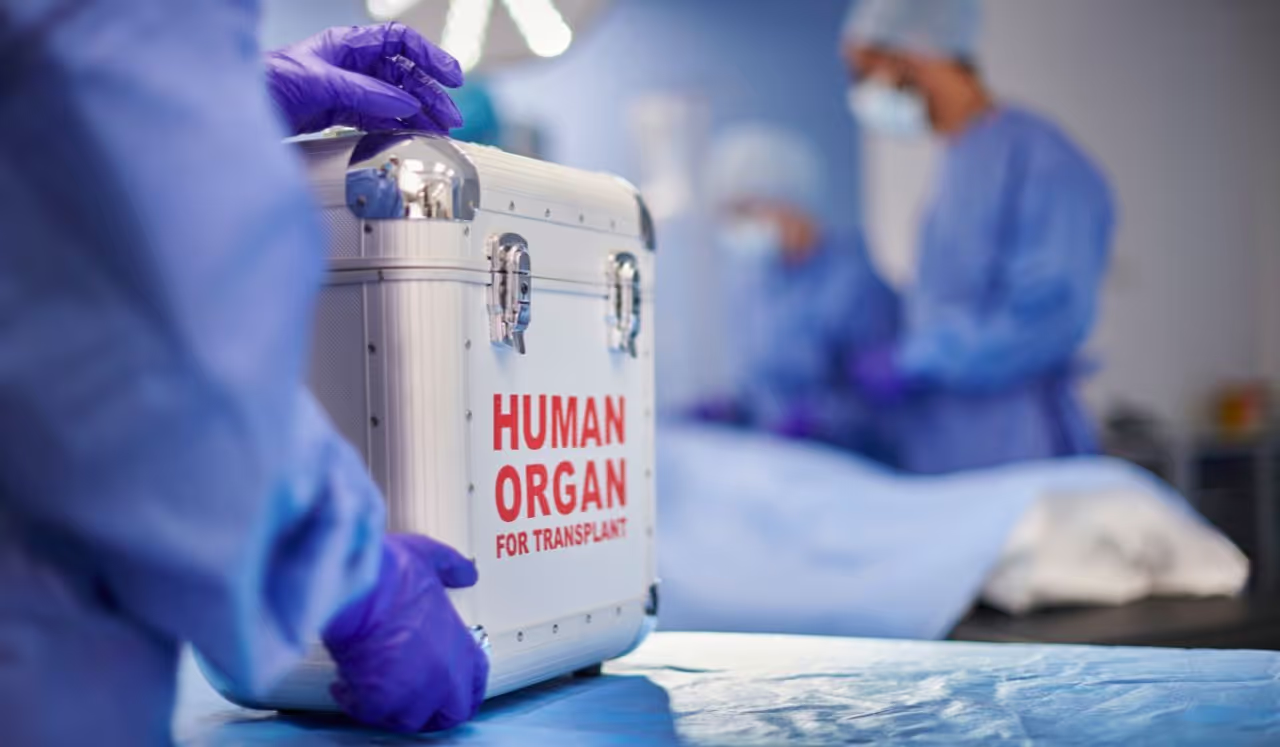
By Michael Mashburn From Daily Voice
New Jersey’s largest organ procurement group is facing explosive allegations that it tried recovering organs from a patient who was still showing signs of life, fueling a broader congressional probe into alleged fraud and record manipulation.
In a scathing letter sent to New Providence-based New Jersey Organ and Tissue Sharing Network (NJTO) on Wednesday, Nov. 19, the US House Ways and Means Committee claimed it had uncovered several “egregious actions and potential violations of federal and state statutes.”
Nearly a dozen whistleblowers came forward with evidence of fraud, cover-ups, and illegal practices tied to the group’s work and its Medicare-funded operations, Committee Chair Rep. Jason Smith (R-Missouri) and Oversight Subcommittee Chair Rep. David Schweikert (R-Arizona) told NJTO President and CEO Carolyn Welsh.
The most alarming allegation centers on a donation-after-circulatory-death (DCD) case at Virtua Our Lady of Lourdes Hospital in Camden. According to the committee, a patient who had been pronounced dead for organ recovery “reanimated” after life support was withdrawn.
Investigators say Welsh, who was off site at the time, told NJ Sharing Network staff to continue with the organ recovery anyway. Hospital staff intervened and stopped the procedure, the letter said.
Several whistleblowers also allege documentation from the case was deleted or altered and that, in mid July, NJ Sharing Network’s email servers were taken offline before emails tied to the incident were erased, according to the committee.
Lawmakers say a donor record in the national system appears to be a bare “skeleton” file, raising concerns about tampering.
Beyond that single incident, the committee says NJ Sharing Network:
Mass-discarded organs: Investigators say they obtained records showing the organization discarded 100 pancreata intended for research on one day in March 2024, even though NJ Sharing Network only reported discarding 79 pancreata from 2021 through September 2024. Lawmakers say this raises questions about whether organs were recovered to pad performance metrics rather than to support legitimate research.
Pressured families on consent: The letter alleges the nonprofit used redacted “Document of Gift” records from the New Jersey Motor Vehicle Commission to claim it already had first-person consent to recover organs, even when a person’s current driver’s license no longer listed them as a donor. Whistleblowers say those records were then used to push back against families who believed their loved one had revoked consent. Lawmakers warned that, if true, such tactics may violate state law and erode public trust in organ donation.
Skipped patients on waitlists: Public data and whistleblower accounts show NJ Sharing Network has allocated more than a quarter of its organs “out of sequence” from the national transplant waiting list, the committee said. Investigators allege staff sometimes made unrecorded, “offline” allocation decisions using personal phones and leaned on an internal list of “aggressive centers” to place organs with favored hospitals. Lawmakers say that practice may have harmed patients who were properly waiting in line and could amount to a violation of federal transplant rules.
Withheld records and misled investigators: The committee says NJ Sharing Network failed to fully comply with document requests, including an alleged online folder prepared for a federal survey by the Centers for Medicare & Medicaid Services (CMS). Lawmakers say internal materials tied to a CMS site visit in late 2024 were never turned over, even after specific follow-up questions from congressional staff.
The letter accuses Welsh and senior leaders of fostering “a culture of fear and retaliation” inside the organization, while stressing that the concerns are aimed at top executives, not frontline staff.
Based on the whistleblower accounts and internal documents, lawmakers say they are now weighing whether NJ Sharing Network should keep its tax-exempt 501(c)(3) status and whether new laws are needed to strengthen oversight of organ procurement organizations nationwide.
The committee also floated the idea of tax penalties or excise taxes for groups that use “manipulative practices” to obtain consent or mislead families.
Smith, posting Wednesday, Nov. 19 on X (formerly Twitter), called the allegations “deeply troubling” and said, “Our tax code should not subsidize organizations that harm Americans, which is why I am DEMANDING NJTO explain themselves.”
NJ Sharing Network pushed back internally, according to a staff letter from Welsh that Smith shared publicly. In the message, Welsh told employees the nonprofit is cooperating with the Ways and Means Committee and said leaders are “confident in our practices, our leadership, and the integrity of our mission.”
She noted similar inquiries have been sent to other organ procurement organizations in recent years and said “no issues have ever been found,” adding that the group remains committed to “transparency and integrity.”
The committee is demanding a wide range of documents and has requested transcribed interviews with more than 30 NJ Sharing Network employees. All records must be produced and interviews scheduled by Wednesday, Dec. 3, the letter said, warning that failure to comply could trigger subpoenas.
According to federal data, more than 46,000 organ transplants were performed in the United States in 2023, a new annual record. Lawmakers say investigations like this are aimed at protecting that system and preserving public trust in organ donation.
Daily Voice has reached out to NJ Sharing Network for further comment.

 Daily Voice
Daily Voice
 Sweetwater Now
Sweetwater Now Atlanta Black Star Entertainment
Atlanta Black Star Entertainment CNN Politics
CNN Politics Cleveland 19 News Sports
Cleveland 19 News Sports People Top Story
People Top Story